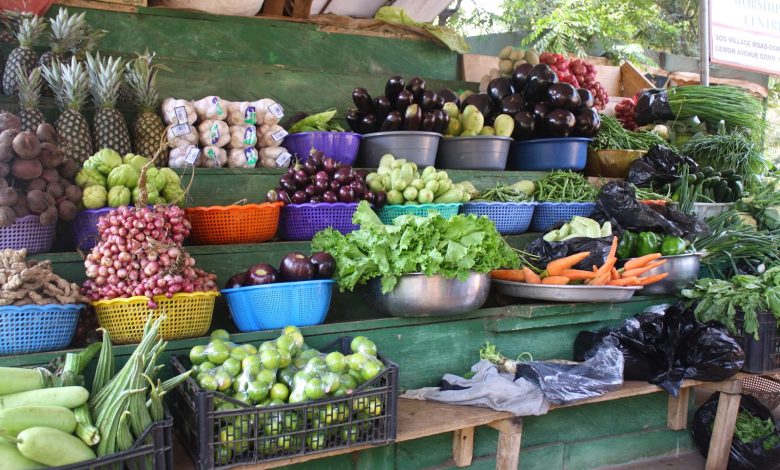
Vegetable prices, including those of carrots, lettuce, and green peppers, have increased dramatically, which has an impact on market sales.
Many sellers are being forced by the circumstances to get rid of the perishable goods since, according to some dealers, their sales are starting to decline and they are unable to break even.
As experts anticipate an influx of the commodities in the upcoming months, Luv Business engaged actors in the value chain.
“Two of the carrots are selling at 15 Ghana cedis and four of the green peppers go for 5 cedis,” Helen, a vegetable trader, at the Ejisu market explains the costs of the varieties of vegetables she sells.
“I can’t sell this small quantity at a lesser price because I won’t break even,” she added.
At the market, Dorcas, another vendor, offers lettuce, cabbage, and other vegetables for sale.
Her commodities are now twice as expensive as before.

The cost of veggies has skyrocketed in the last few years, rising by about 100%.
The dealers place the blame for the price increase on the difficulty in obtaining the commodities and the expense of transferring them from nearby nations.
“We import some from Asante Mampong and others from Morocco. They are scarce because of the low rainfall. The lorry fares have also shot up the price,” the traders said.
Over the years, Ghana has imported a variety of agricultural products, such as vegetables, from its bordering nations, such as Mali, Niger, Burkina Faso, and Côte D’Ivoire.
It prompts the question, “What is happening to the agricultural sector?” given the constant want for foreign produce.
Experts blame additional logistical support for industry participants, particularly farmers, and shifting weather patterns for the declining sector growth.
According to Dr. David Anambam, the Ejisu municipality’s director of agriculture, a significant factor driving increasing costs is the decreased supply of the goods.
He claims that in order to support agriculture in Ghana, an irrigation-dependent farming system is required for year-round production.
“Many farmers are not working now during the off season especially those without irrigation. Because there are a few left and the demand is more than the supply, it will surely shoot up. If you want to promote agriculture under rainfed agriculture, I don’t think so,” he said.
Like many other farmers in the nation, Anthony Okyere grows vegetables in the Ejisu municipality, but he too faces existential challenges to his family’s farming enterprise.
“The high sun intensity burnt all the crops. I nearly gave up after seeing my farm,” he sadly recounted.
Ghanaian farming has historically relied only on rainfall, which agricultural specialists claim is detrimental to the industry’s expansion.
Dr. Natson Eyram Amengor, an agricultural economist from the Council for Scientific and Industrial Research’s Crops Research Institute, is presenting potential answers to the enduring problem.
He said:
“If we want an immediate solution, it would be on improving the access roads and for long term, we should look at moving away from rainfed agriculture. We must enhance our storage and processing systems. Most often there are not storage facilities, so during the times where there is abundance of foodstuff, they go waste,”
As the traders start to see low sales and post-harvest losses, the rising prices of the commodities are having a significant impact on their sales.
“Our commodities are spoil. We have to dispose them of,” Dorcas, the vegetable trader, added.
Despite the ongoing scarcity and tough economic conditions, both vegetable consumers and traders can anticipate relief in the near future.
“By June-July, as the farmers start receiving rainfall, we should see an increase in vegetable supply,” Dr. Anambam promised.
In the meantime, vegetable enthusiasts and sellers must endure the burden of high commodity prices.
Read Also: Cedi Drop: Abossey Okai Spare Parts Prices Expected To Rise



